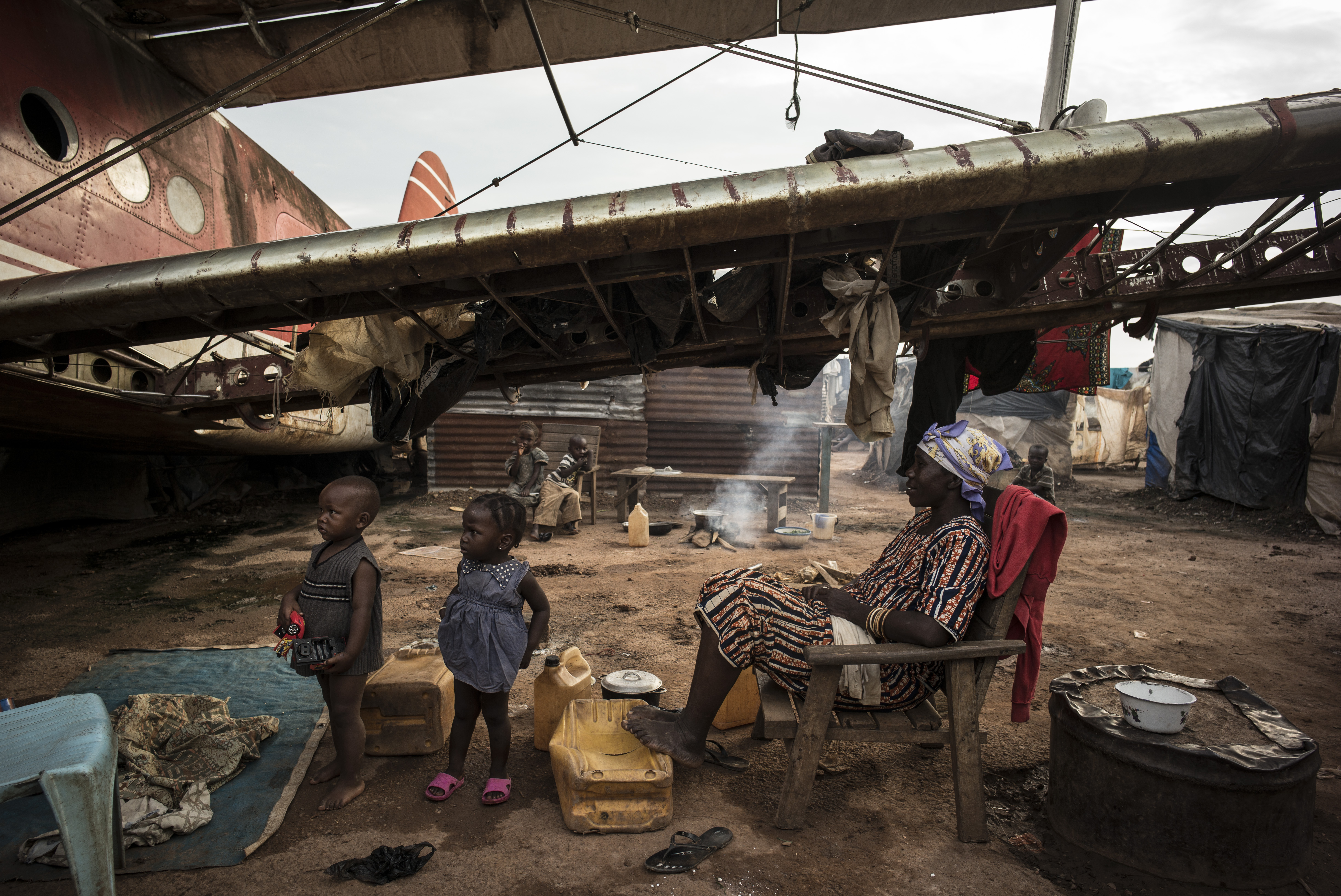Rapid treatment saves seven-year-old CAR refugee chopped and left for dead
Rapid treatment saves seven-year-old CAR refugee chopped and left for dead

GBITI, Cameroon, June 6 (UNHCR) - As Ibrahim plays happily in front of his mother in the Cameroonian border town of Gbiti, he looks like any other seven-year-old. But when he turns, visitors are taken aback by a deep scar in his head.
The ugly machete wound will be a life-long reminder of his brush with death at the hands of militiamen across the border in his native Central African Republic. He owes his life to the speedy intervention of UNHCR staff in Cameroon who spotted his terrible wound as he crossed a shallow river marking the border with Central African Republic. A chunk had been cut out of his head, exposing bone and part of the brain.
UNHCR rushed him to hospital in the town of Bertoua, a three-hour drive away from Gbiti. It was touch and go. In addition to his undressed wound, the boy was weak and malnourished from hiking through the bush to the safety of Cameroon with his parents. "During those two months, he did not sleep, he could not sleep, he did not stop crying," his mother Djoumba recalled.
Most of the people arriving in Gbiti are exhausted and in a precarious physical condition after fleeing brutal attacks on their homes by armed elements. Many are suffering from deep cuts or bullet wounds, but they count themselves lucky to be alive. The elements attack men, women and children and few of the young survive a wound as bad as that inflicted on Ibrahim.
UNHCR and its partners closely monitor the thousands of people crossing at Gbiti, keeping an eye out for people in need of medical assistance, especially malnutrition, but also physical injuries. Those needing hospitalization are taken to Bertoua, others are moved to refugee camps. Without this support from UNHCR and partners, like Médecins Sans Frontières, many would die.
Like many rural folk, Ibrahim's parents probably thought the inter-communal conflict that flared last December in Bangui would never come to them. But two months ago, as Ibrahim's father, Amadou, was out tending his cattle, a group of militiamen came to their home.
"They found me with my children in the house; they gathered all the small children and slaughtered them with machetes. They killed six people, including five children in my presence," 30-year-old Djoumba said. "Ibrahim was among the six children they took. When they hit him with the machetes, they thought he was dead."
The intruders wanted to take Djoumba with them, but left her behind when she resisted. "They left me lying on the floor next to Ibrahim. Shortly after that I realized that Ibrahim was still breathing," she explained.
When Amadou returned home, he found his wife and injured son and decided to leave their village immediately and head for safety in Cameroon. They could not dress Ibrahim's wound, but they washed it with hot water when possible, to try and reduce the risk of infection. But his parents thought Ibrahim would eventually die.
"We walked during two months, day and night. When we came to a river, we rested a little [before crossing]. We drank river waters and ate the meat of dead cows that we found on the way. The cows were also dying of hunger," Djoumba said.
Somehow they all reached the border alive, and it was fortuitous that they crossed into Cameroon at a spot where UNHCR staff were present and able to rush Ibrahim straight to hospital for the care he so desperately needed.
He was released from hospital after a month and joined his family in Gbiti, where they had built a shelter while they waited to be transferred to Mbile refugee camp, deeper inside Cameroon. Some 20,000 refugees have crossed at Gbiti so it takes time moving them all inland.
Today, Ibrahim's wound has healed and he plays happily with new friends. There has been no permanent brain damage, but he may need counselling for trauma. He was lucky, but he must have also had a strong will to fight for life. When he gets to the refugee camp, he will be able to resume his education.
Many of the children fleeing the brutality in Central African Republic never make it to neighbouring countries, including Cameroon, where UNHCR, MSF and other humanitarian actors will provide emergency assistance, including basic shelter and health care. They die in attacks or from starvation or disease on their way to safety.
By Céline Schmitt in Gbiti, Cameroon









